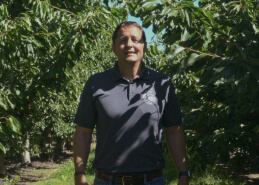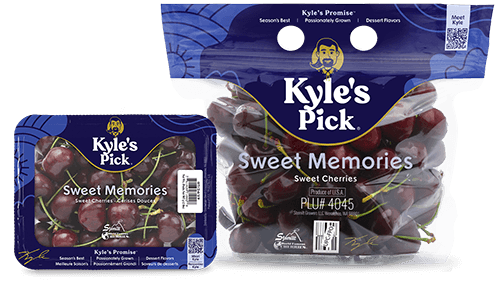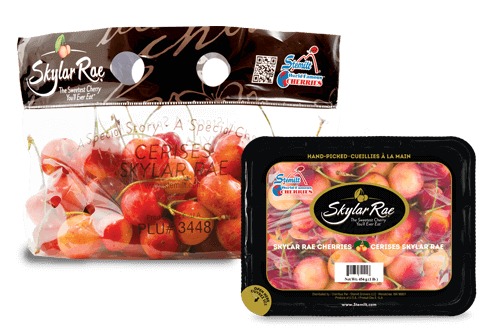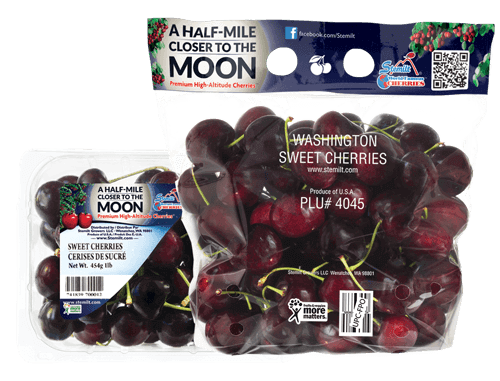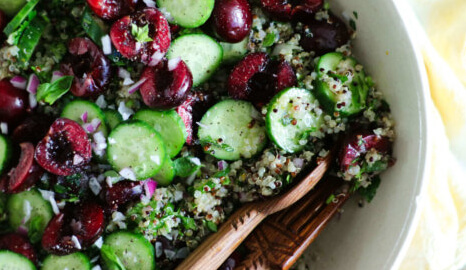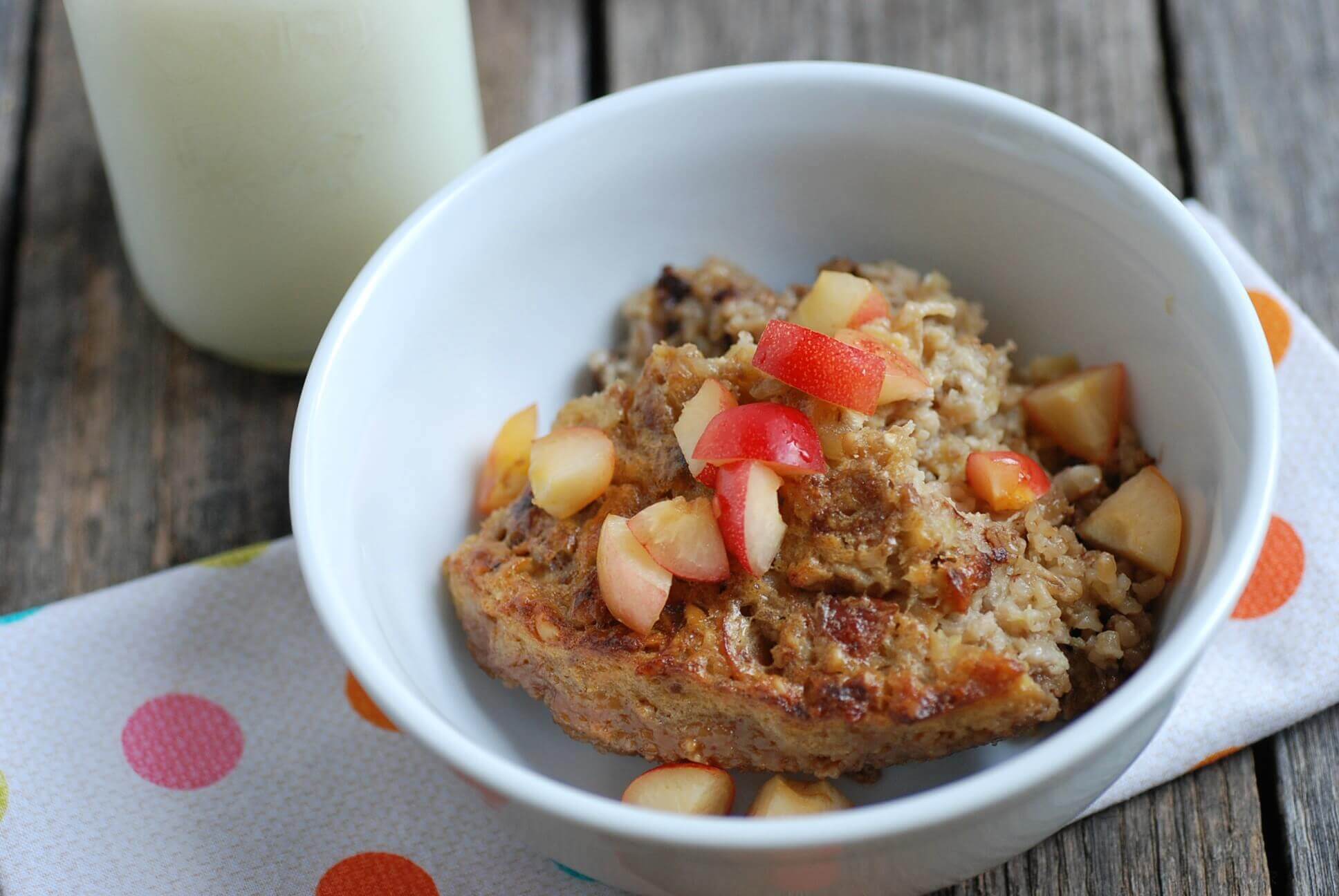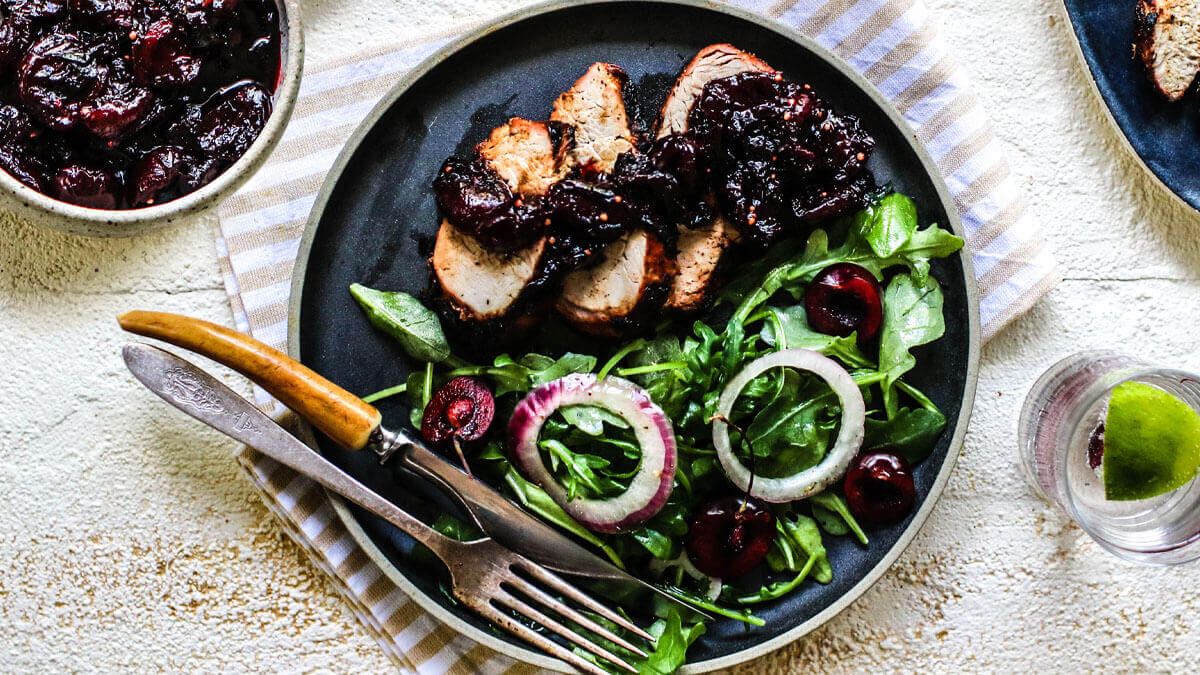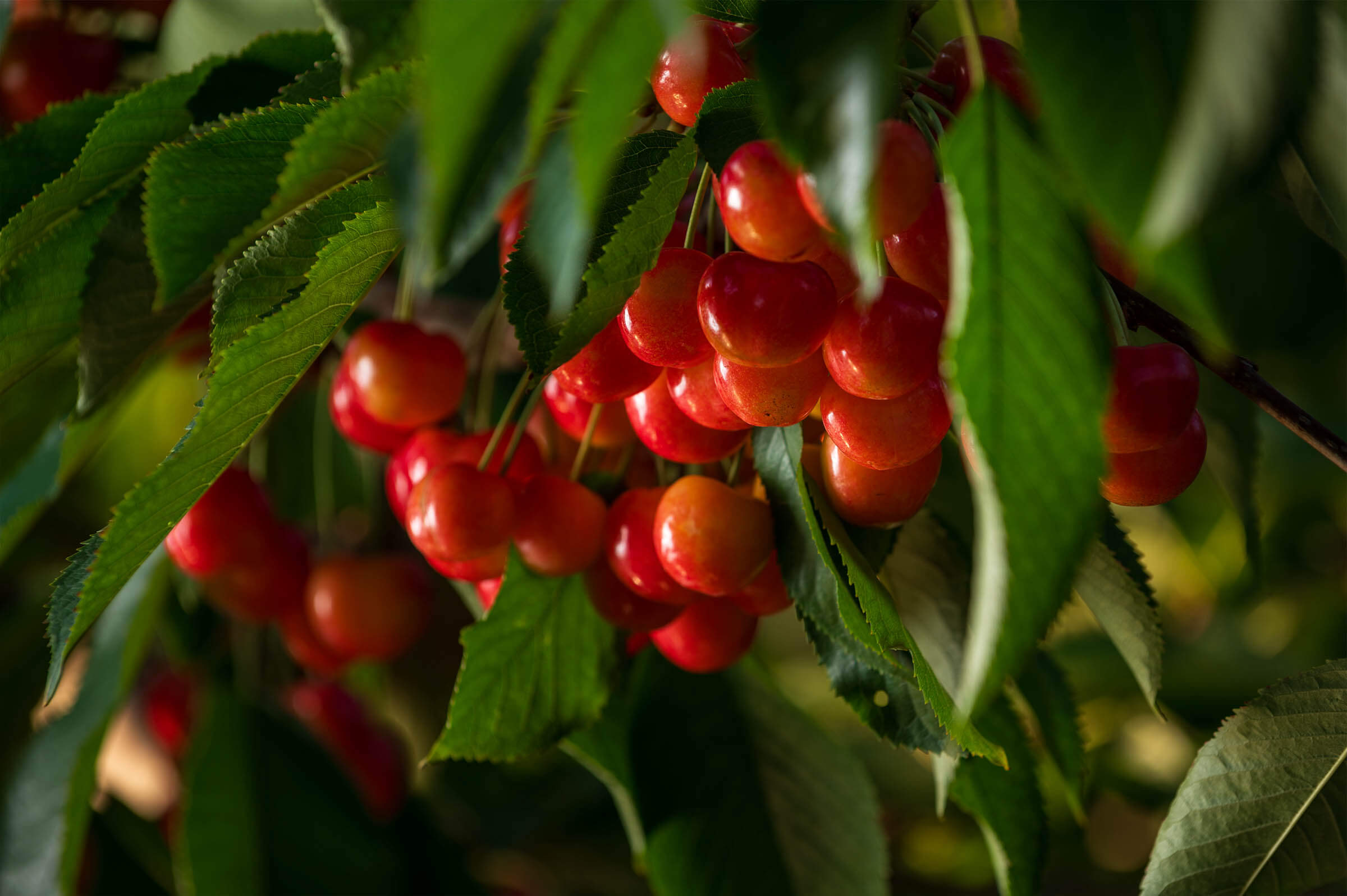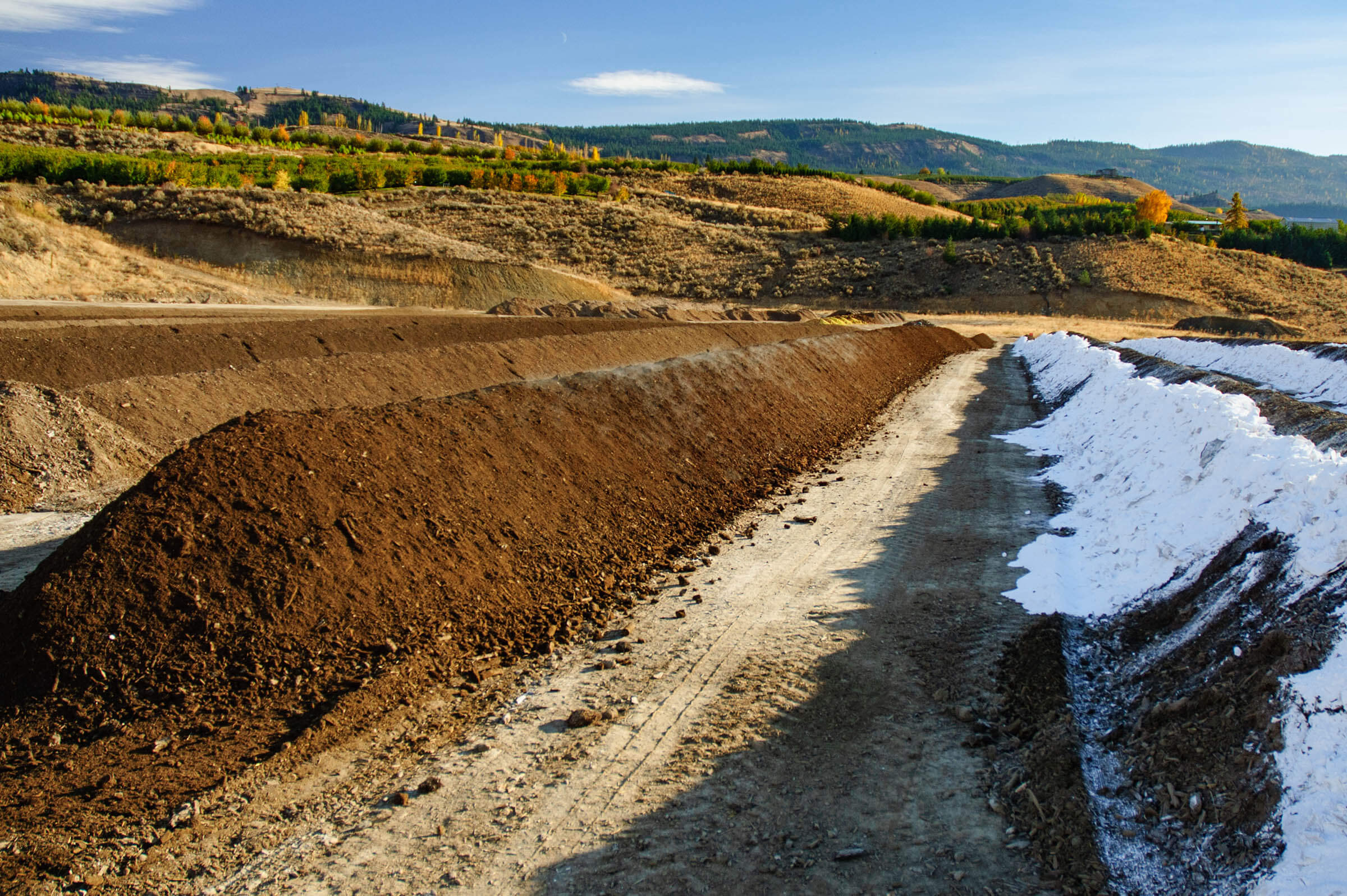Fruit Tips and Care
The Stemilt Difference
Over 5 generations and 60 years of growing experience enables us to grow some of the season’s tastiest cherries
What to look for when selecting cherries:
- Cherries with bright green stems attached.
- Dark red to mahogany color for Dark-sweet cherries.
- Yellow color with slight pink to red blush for Rainier cherries.
- Firm to the touch!
- Plump, smooth, shiny and unblemished skin.

Summer’s Healthy Gems!
- Cherries are a superfood that help you live your healthiest life!
- They score a low 22 on the glycemic index, making them great for maintaining blood sugar levels, especially for those with diabetes.
- Cherries contain boron which maintains calcium balance, promotes bone health, and prevents osteoporosis.
- They have potassium to help muscle, heart, kidney, and nerve cells function.
For more information about sweet cherry health, nutrition and research, please visit our friends at Have A Plant, Fruits and Veggies for Better Health.
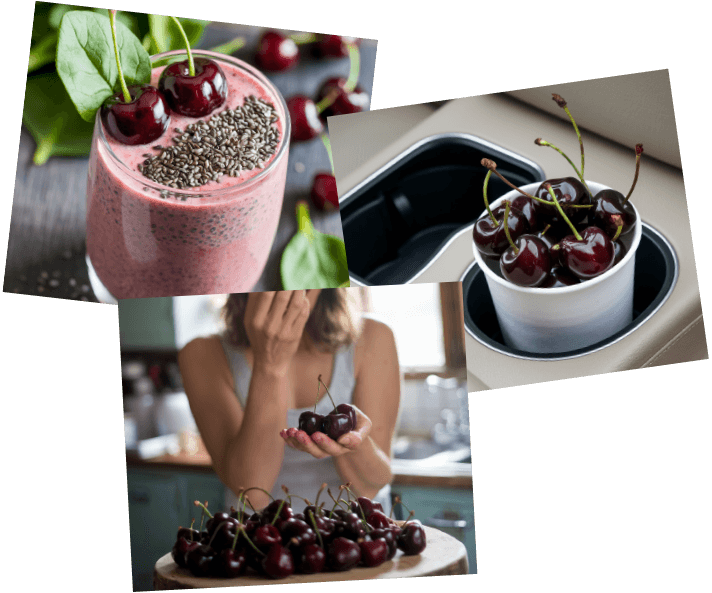
Your Frequently Asked Questions:
Should I store cherries in my fridge?
Absolutely! Cherries deteriorate rapidly when left unrefrigerated, losing their crunch and flavor. In the fridge, they remain fresh for about a week.
I noticed light brown spots on my Rainier or Skylar Rae® brand cherries. What are they?
The light brown spots on these delicate, light-skinned cherries are an extra-sweet sugar spot! Enjoy!
If I plant the pits from your cherries, will it result in a tree with edible fruit?
It’s not likely. The best way to grow your own cherries would be to purchase a tree from a local nursery. Planting from seed may produce a tree, but it probably won’t produce edible fruit. Fruit trees are grown by grafting a specific variety onto an established rootstock, so planting from a seed won’t get you the high-quality fruits you are after.
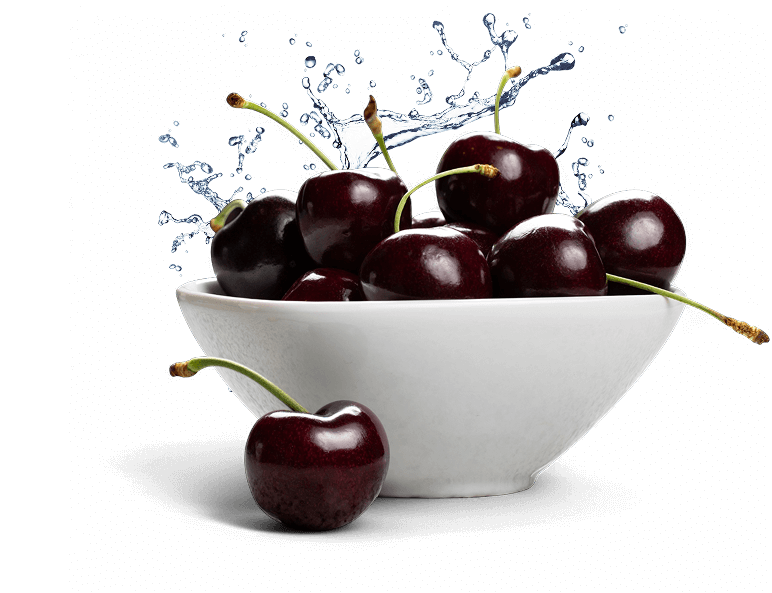
Cherry Storage Tips:
We recommend eating cherries within 5-7 days of your purchase for the best experience! Here are our top tips for keeping cherries fresh and flavorful all season long:
- Store cherries unwashed and uncovered in the coldest part of your refrigerator.
- Keep cherries away from strong smelling foods like onions.
- Keep cherries out of warm places or in direct sunlight to avoid decay. One bad cherry can spoil the batch!
- Store cherries in the freezer to enjoy them later. Pit the cherries for easy application in the kitchen when you’re ready. If you aren’t sure how to pit a cherry, we have THREE ways for you to try.
- Homemade Cherry Juice is a healthy treat and a great way to use cherries if you have too many of them. If they are frozen, thaw them out, throw them into a juicer and voila!
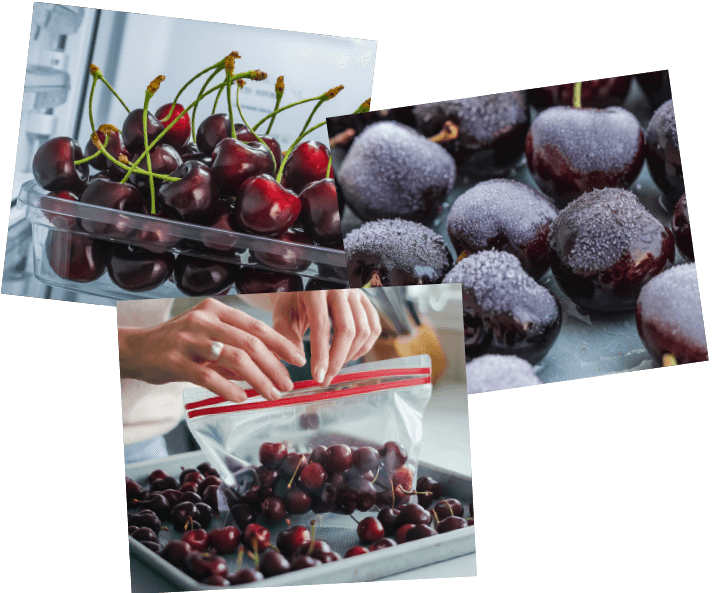
Cherry Varieties
Trust The Farmer
Stemilt’s founding family, the Mathisons, have been harvesting cherries since 1964 by hand on Stemilt Hill in Wenatchee, Washington.
Taste The Difference
Today, Stemilt cherries are picked, packed and shipped using a cold chain that puts freshness and flavor back into the hands of those who enjoy our cherries!

World Class Growing
Locations
Stemilt’s cherries are grown in optimal locales in California and Washington state. In California, we grow in the Delta region where warm days and cool nights develop sweet cherry flavors. In Washington, we grow by the Columbia River, all the way to Stemilt Hill up to 3,800 feet in elevation.

Industry Leading Growing Practices
As summer ramps up, so does cherry harvest! Starting in late May and early June, cherry harvest begins and becomes the main activity during the summer months. Cherries are harvested daily at sunrise and each cherry is hand-picked!
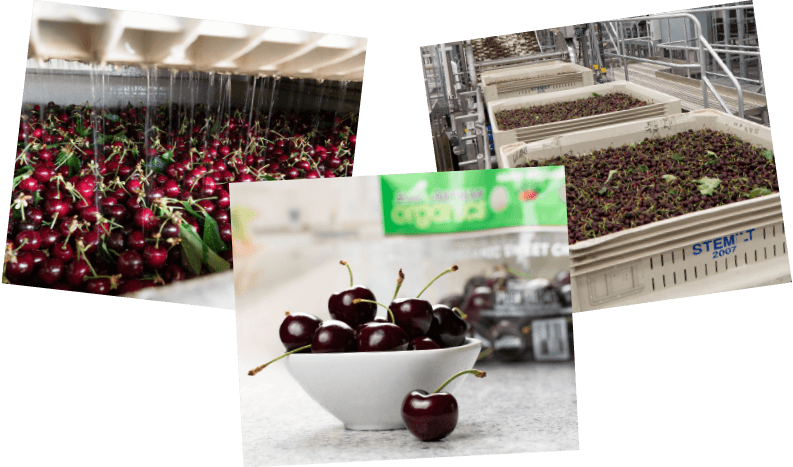
Innovation To Excel
Once cherries are plucked from the tree, it’s a race against time to get them to you. Cherries are uber perishable after all! We hydrocool cherries within hours of harvest (usually right at the farm) to ignite the cold chain that maintains their freshness. Then it’s time to pack cherries!
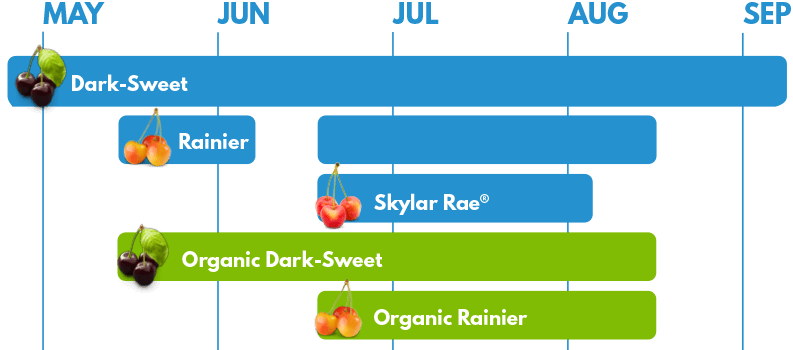
Longest Cherry Season
Stemilt’s cherry season is unique because it starts in early May and doesn’t end until early September. It’s the longest cherry season anywhere!



